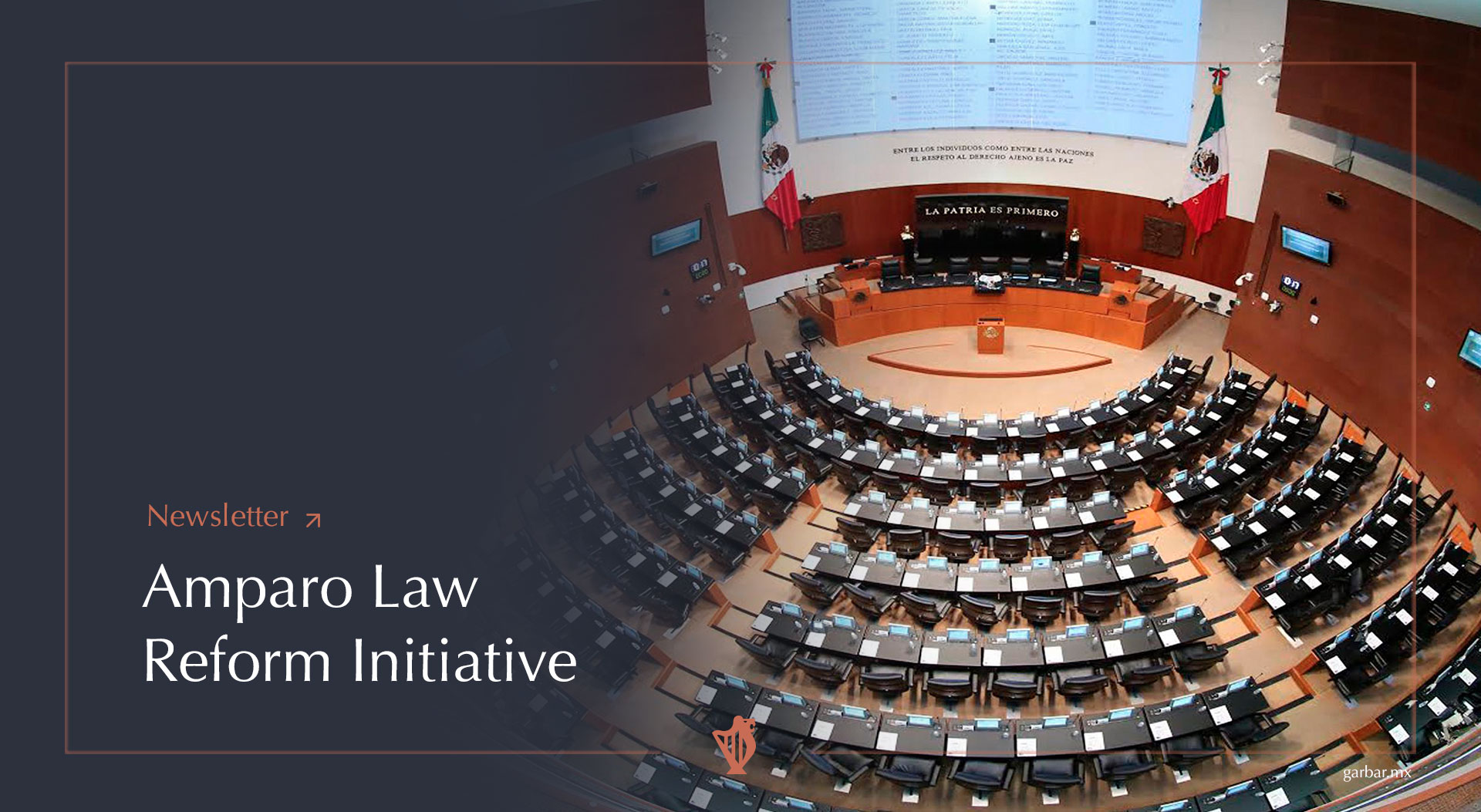Litigation and Alternative Dispute Resolution Methods

Amparo Law Reform Initiative
On 15 September 2025, the President of the Republic submitted to the Senate an initiative to reform the Amparo Law (the "Initiative"), which introduces significant changes in terms of legitimation, suspension or stay of attacked governmental acts, procedural deadlines, digital trials, extension of claims and enforcement of judgments.
Although these reforms have been submitted as a step towards more agile and accessible justice, in practice they could limit effective access to amparo and restrict judicial protection against acts of authority.
Below, we highlight the main proposed changes and their implications for individuals and companies:
- Legitimate interest
The Initiative seeks to clarify the elements that constitute legitimate interestin order to preventabuses and strategic litigation:
- The alleged damage must be real, current, objective and distinct..
- The annulment of the claimed act must generate a certain and direct benefit, not a hypothetical one.
Comment: Although the intention is to limit inadmissible claims, there is a risk that access may be restricted for groups or collectives that are unable to prove a direct benefit, thereby weakening the use of the Amparo in the defense of diffuse rights.
- Suspension or Stay of the Attacked Governmental Acts
The figure of suspension—a key precautionary measure in amparo proceedings—is subject to new restrictions:
- Administrative matters: Suspension is inadmissible when the intention is to continue activities that require authorization or a concession that has been revoked or never obtained.
- Financial system: It is presumed that social interest is affected if the suspension allows operations possibly linked to money laundering or terrorist financing. Only access to minimum resources to cover essential needs is guaranteed.
- Tax matters: The suspension of the enforcement of final tax credits will only proceed if the taxpayer guarantees the tax interest in accordance with Article 141 of the CFF.
Comment: The conditions for suspending bank account freezes are tightened, which in practice will be excluded.
The obligation to guarantee tax credits by means of a deposit note could entail disproportionate financial costs and greater discretion on the part of the authority to reject other guarantees.
Las Public sector entities are exempt from providing guarantees to obtain suspension, which creates unequal treatment compared to private individuals.
- Procedural deadlines and control of delays
The Initiative incorporates deadlines that were not previously regulated and limits the possibility of delaying incidents:
- Recusations: These will be dismissed if they are intended to obstruct proceedings. They may only be filed before the matter is listed.
- Submission of evidence: There shall not be extension due to postponement of the audience, except in the case of supervening events beyond the control of the parties.
- New terms:
- 5 days to notify the admission of the appeal for revision.
- 5 days to notify the admission of the direct appeal.
- 60 days to resolve indirect amparos outside the constitutional hearing.
Comment: These rules may contribute to more expeditious trials, but they also impose on the parties a burden of advance preparation, reducing room for maneuver in complex litigation.
- Digital amparo trial
It is proposed to expressly incorporate the concept of online amparo proceedings into the Law, regulating:
- Electronic filing of promotions.
- Participation of authorities via digital media.
- Electronic and hybrid files.
- Preferably electronic notifications.
Comment: The digitization of amparo represents a step towards procedural modernization. However, practical implementation will depend on the technological capacity of the courts and user training, which could lead to asymmetries in access to this format in the use of amparo proceedings.
- Extension of the claim
The Initiative restricts the extension of the Amparo claim to cases expressly provided for in Article 111 of the Amparo Law. In addition, it requires that the fact or act that motivates it was not known when the initial claim was filed.
Comment: This is a significant limitation: the parties must concentrate their procedural strategy on the initial demand, as the possibilities for extension are considerably reduced.
- Enforcement and compliance with judgments
Provisions are incorporated that allow the authorities to allege legal or material impossibility of compliance:
- Judges must first verify whether the responsible authority has jurisdiction to enforce the judgment (Art. 192).
- If impossibility is proven, the authority shall be exempt from penalties or liability (Articles 262, 267, and 269).
Comment: This reform could weaken the effectiveness of amparo as a means of control, by making it easier for authorities to justify non-compliance with judgments and leaving the complainant defenseless.
Final reflections
In practice restricciones sustantivas , the Initiative introduces substantive restrictions on access to and the effectiveness of amparo proceedings.
If approved in their current form, the reforms will imply:
- Rigidity of legitimate interest as a legally protected and recognized interest for access to amparo proceedings, requiring real, current, objective and differentiated effects.
- Restriction in the granting of precautionary measures, especially in tax and financial matters.
- Greater procedural rigidity, with stricter deadlines and less flexibility in evidence and extension or amendment of claims.
- Possible weakening of the binding force of amparo rulingsby expanding the power of the authorities to allege impossibility of compliance of Amparo judgements.
If you have any questions or comments, please do not hesitate to contact our team.
Contact:
Lic. Daniel García Barragán L.
danielgb@garbar.mx
Lic. Juan Pablo Becerra M.
jbecerra@garbar.mx
Lic. Israel Muñoz Portillo
imunoz@garbar.mx
Lic. Daniela Cabrera Muñoz
dmunoz@garbar.mx